The EC Might Have Killed the 990 Amendment for Now, But the Issue is Going to Rise Again
I’ve spent over a year advocating for greater financial transparency from our Southern Baptist entities—and I have no plans to stop now.
My work, which I am pursuing on behalf of Southern Baptist churches like mine across our country, began when I made a motion at the 2023 SBC Annual Meeting in New Orleans to amend the SBC Business and Financial Plan. My amendment, known as the “990 Amendment,” would require all SBC entities to compile and disclose information in the same detail, scope, and quality as would be required to be disclosed on the IRS Form 990 to any SBC church that asks for it.
As I explained before, this “990 level” information:
“…represents the bare minimum level of information that the federal government says donors and the public ought to know to evaluate a non-profit organization’s financial health, practices, and trustworthiness.
On Form 990, a non-profit organization discloses detailed financial information and describes its mission, significant activities, and governance. Organizations report their revenues, expenses, assets, liabilities, accomplishments, the number of employees, their three largest program services, top contractors, and select compensation information. Additionally, 990s require organizations to answer questions about policies related to conflicts of interest and, related, to disclose transactions with trustees and other interested persons.”
I’m pursuing financial transparency from our entities for many reasons. First, our churches and messengers who fund the gospel work of the SBC deserve it. Second, trust is at an all-time low in the SBC right now—and much of that loss of trust is due to an increasing number of reports of serious financial mismanagement at our entities. Third, this is simply a “best business practice” and one that our entities should have been doing for a long time. Finally, this information would empower messengers to hold the trustees accountable for overseeing our entities; they are not appointed to defend the entities but serve Southern Baptists by overseeing them. We are told to “trust the trustees.” But do the trustees trust the messengers? This information would show us one way or another.
Death by Delay: The EC Used Bureaucratic Maneuvering the Kill the Amendment
Unfortunately, after a year of working to advance this amendment, the SBC Executive Committee refused to bring it before the messengers for a vote at our 2024 Annual Meeting in Indianapolis. The EC did not give any specific reason for refusing to do so but instead put forth the following recommendation:
“That the SBC Executive Committee requests the trustees and staff of al Southern Baptist entities, institutions, and commissions to maintain accountability and transparency, as directed by the Business and Financial Plan, in their reports to the Convention, and
That the SBC Executive Committee, in cooperation and collaboration with SBC entities, institutions, and commissions, commits to reviewing the Business and Financial Plan, to determine ways to enhance transparency and clarity of reporting to the Convention, and will report its findings and recommendations to the messengers at the 2025 Annual Meeting in Dallas, Texas.”
This, of course, was a delay tactic. Having had a year to review my motion, specifically, and financial transparency in general, the EC recommended another year to study the issue and make recommendations to the messengers next summer. Specifically, the EC committed to determining ways to enhance transparency and clarity of reporting. However, my motion gave them a very specific plan to do so in the form of a 990-level disclosure, which they declined. Therefore, whatever plan they bring forth is likely to be insufficient, not rising to the non-profit industry standard of 990-level reporting.
It’s neither uncharitable nor accusatory to state that the EC failed in its job here. This decision was not theirs to make—it was one for the messengers. Believing this decision rightly belongs to the messengers, I made a similar motion on the floor of Tuesday’s business session. This new motion expanded the scope to specifically include the Executive Committee in the reporting requirement while also making explicit provisions for the IMB to protect missionary safety.
The new motion read:
“I move that THE BUSINESS AND FINANCIAL PLAN BE AMENDED AS FOLLOWS: Financial Reports, Paragraph 3 be added, to state: In addition to the foregoing, within six months of the close of each financial year, each Entity and the Executive Committee will publish information in the same detail, scope, and quality as would be required to be disclosed to the public in the informational Return of Organization Exempt From Income Tax, or Form 990, and all applicable schedules and attachments thereto. An officer of the entity must attest that the information is true, accurate, and complete to the best of its knowledge. Unless otherwise provided, the Entity or Committee will use the definitions applicable by law. This does not require any Entity or Committee to file a 990 with the IRS or to disclose information that is not normally available to the public, such as Schedule B. An entity or Committee may use pseudonyms or note the withholding of information to the extent the majority of its Trustees or Committee Members determines that disclosing such information would pose a threat to the life, safety, or effectiveness of international missionaries.”
As expected, this motion was again referred to the EC. And again, believing this is a decision for messengers, not the denominational bureaucracy, I made a motion to suspend the rules and schedule a vote on the motion at this year’s Annual Meeting.
That vote needed a simple majority to schedule it, but the motion failed. Overruling the chair’s decision is always a tall order, and the messenger body is historically very hesitant to do so, which proved true in this case. However, debate is not allowed on such a motion, and I am not convinced the messengers were entirely aware of the entire issue at play.
As such, we lost the vote, and that was disappointing.
The end result is that Southern Baptists will still not receive a proper accounting of how their mission dollars are being stewarded. They remain in the dark regarding executive compensation, conflicts of interest, transactions with trustees, top contractors, and some program-level financials.
In the title, I called this article a “post-mortem,” referring to how the financial transparency motion died in the EC. But the wonderful thing about being a Christian, to paraphrase G.K. Chesterton, is that we follow a God who knows His way out of the grave. The old motion may have been killed, and the new motion referred to the dark catacombs of EC subcommittees, but transparency advocates will not give up so easily.
The Demand for Financial Transparency is not Going Away
Rest assured, this issue is not going away.
We will continue to push our entities to walk in the light and give a proper accounting of our Cooperative Program dollars. We will broadcast it when they flout the Business and Financial Plan. We will educate churches and messengers about how our current reporting is insufficient and how the lack of transparency breeds distrust within our Convention and harms Cooperative Program giving. We remain committed to good governance.
We do so because we remain committed to the Great Commission and our shared mission to reach the whole world with the Good News of Jesus Christ. We do not intend to let that mission suffer because of a lack of proper financial transparency.
I hope members of the EC read this and hear, loud and clear, that we will not let them kill this effort through their bureaucratic delay tactics. Faithful Southern Baptists deserve to know how our money is being managed. Entity heads and EC members who are resisting this effort are failing in their most basic task of cultivating trust through godly transparency.
If the SBC wants to have a healthy future, our leaders need to “trust the Lord and open the books.”
Because if they don’t open the books, Southern Baptists are going to close their wallets. And no one wants to see that happen.
-

Rhett Burns is the pastor of First Baptist Church of Travelers Rest. A lifelong Southern Baptist, he previously served with the IMB in Central Asia. He resides in Travelers Rest, SC with his wife and four children.

